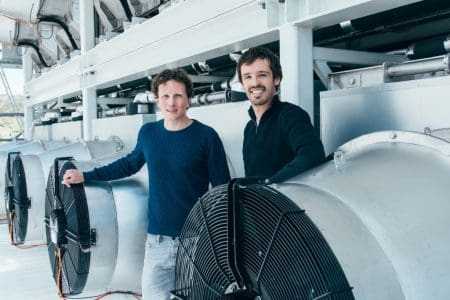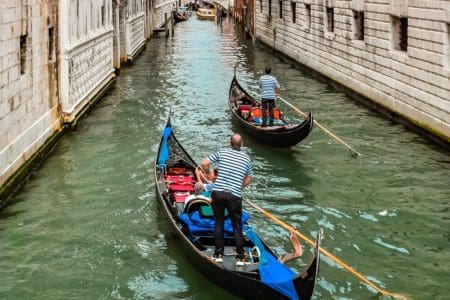In the latest in our #SustainableSunday series, Mark Bibby Jackson interviews Flavia Santoro, president of ProColombia, the government entity that promotes international tourism, foreign investment and non-traditional exports in Colombia.
What does sustainable tourism mean to you?
Sustainable tourism is the future of our industry. Now more than ever, travel must actively help and strengthen the communities and ecosystems within a destination, and we are embracing this at ProColombia. We recognise sustainable tourism as a transformative tool that has the power to protect our incredible landscapes, conserve our natural resources and contribute to our fascinating locals.
At ProColombia, we are using this time of recovery to implement sustainable tourism projects, which in turn will help our economy and communities to recover.
Colombia is the second most biodiverse country in the world and is home to more bird species than anywhere else on earth
We are working to new sustainable tourism guidelines under the government’s reactivation plan following the pandemic. ProColombia has worked tirelessly to develop these guidelines; currently, all tourism must focus on activities that positively impact the environment and local communities. We have developed tools for Colombian tourism businesses to help them refocus and adapt to sustainability measures, aiding their recovery and longevity when travellers return.
Why is sustainable tourism so important to Colombia’s development?
Colombia has tremendous natural and cultural assets and protecting them is of the utmost importance to us. Colombia is the second most biodiverse country in the world and is home to more bird species than anywhere else on earth. The country is also multiethnic and culturally diverse, with at least 84 indigenous communities and more than 60 native languages.
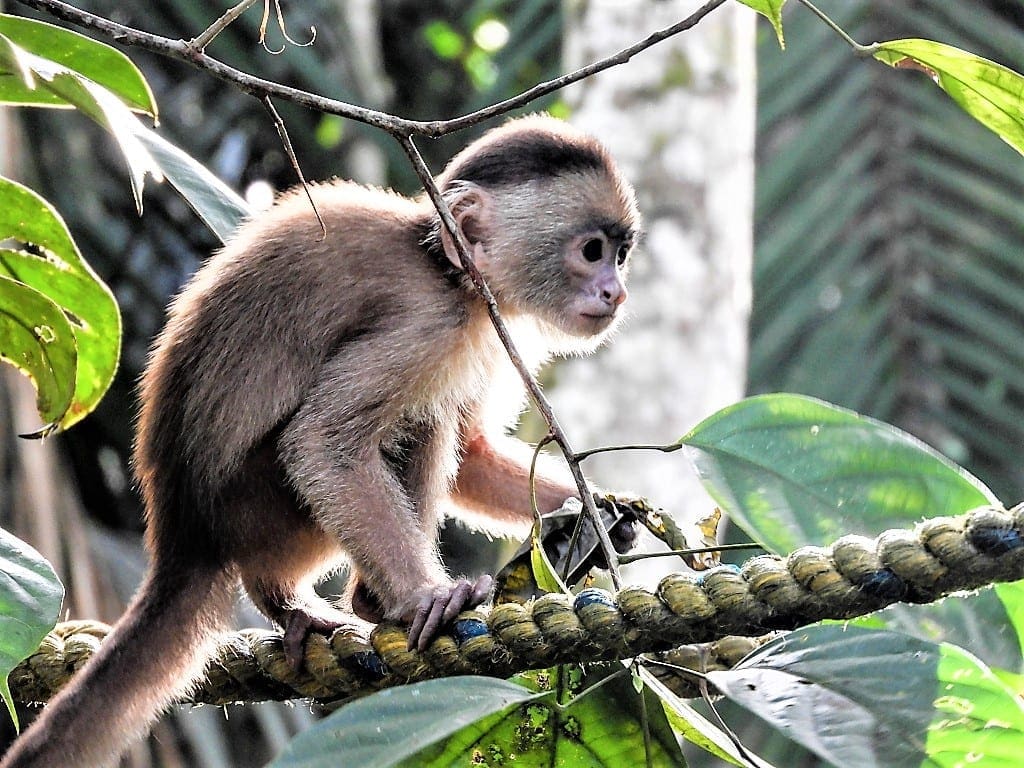
As such, Colombia works to ensure that the destination, its heritage and culture are protected, as well as enjoyed. Colombia has actively participated in global initiatives such as the International Year of Sustainable Tourism for Development, declared by the UN and the World Tourism Organization (UNWTO) in 2017. In addition, the Vice Ministry of Tourism chaired the Committee on Sustainable Tourism in September 2019, which took place during the XXIII UNWTO General Assembly. Colombia’s Ministry of Commerce, Trade, and Tourism has also set forth guidelines that foster good tourism practices in order to protect Colombia’s communities and the environment.
You recently passed into law a new Sustainable Tourism Policy with environmental protection at its core, can you explain how this works?
Sustainable tourism is so crucial to Colombia, that at the end of 2020, it became a governmental policy to promote best practices that conserve and protect Colombia’s natural and cultural heritage through responsible tourism – a development that ProColombia helped push through.
First, the ministry reformed the General Tourism Law, placing sustainability at its core. It now formally recognises that the protection of the environment and local communities is crucial for the recovery of Colombia’s tourism industry, following the pandemic, among other strategies to fortify the value chain by making it more formal and with strong qualities. This new law supports and integrates with the second initiative known as the new Sustainable Tourism Policy, designed to create projects for conservation and to protect natural tourist attractions. Colombia is one of the only countries in the world to have such a policy. Through these, stakeholders in the tourism industry ensure that destinations are managed responsibly and that the needs of local communities are met.
Environmental protection and sustainable tourism must work hand in glove
In alignment with these two initiatives, ProColombia is seeking to attract foreign travellers who are responsible when visiting Colombia. This is extremely important as international trends indicate an increase in the demand for cultural and nature-led experiences that allow for a true connection with the destination. These experiences are mostly outdoors and away from crowds, so environmental protection and sustainable tourism must work hand in glove. In turn, consuming local products, taking care of nature, valuing biodiversity, preserving cultural heritage, respecting local customs, and recycling and reusing are some of the actions that create a positive impact on protecting Colombia and its environment. Soon, travellers will be able to find useful tips on being a sustainable tourist when visiting our country on www.colombia.travel
How will ProColombia prioritise sustainable tourism in the future?
Over the next ten years, we are hopeful that the development of tourism in Colombia can continue its steady growth whilst meeting the high expectations that both our Sustainable Tourism Policy and our General Tourism Law have laid out. We have been seeing a year-on-year increase in visitor numbers, and we want to ensure that these are high-quality, sustainable visits from responsible travellers.
Sustainable tourism is a key factor in the social development of our country, since many eco-tourism activities in Colombia are guided by local hosts and guides who enable visitors to discover the country’s hidden gems. This provides income to the country’s most remote communities, whilst giving travellers an authentically Colombian experience.
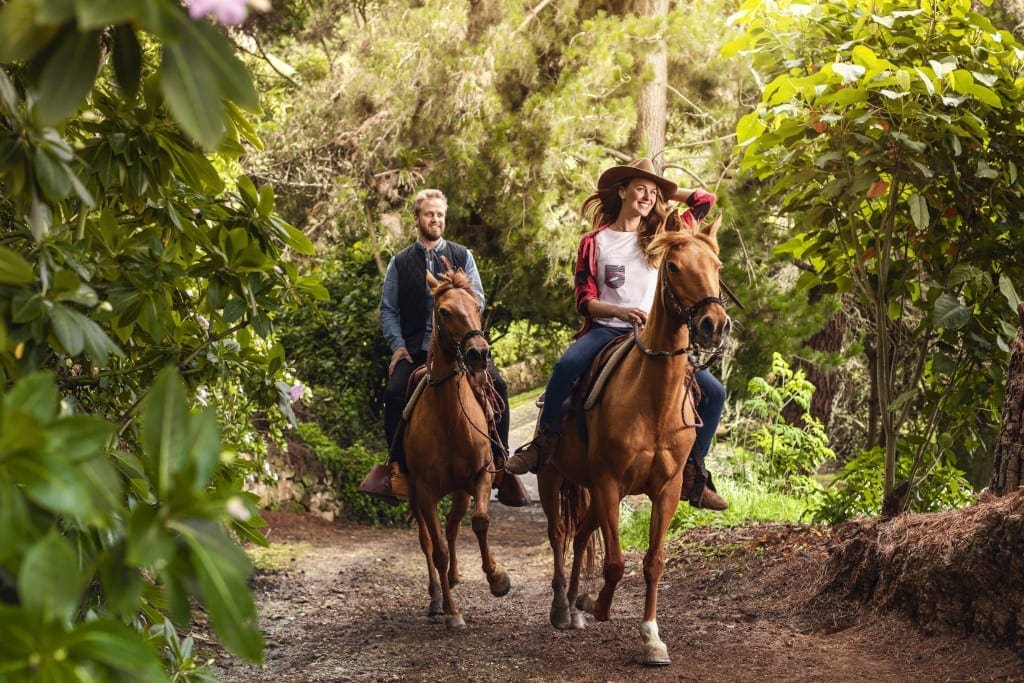
Recently, two Colombian companies have won prestigious awards for enabling local community participation in tourism practices. Impulse Travel and NIBI were both recognised in the UNWTO SDGs Global Startup Competition, which awards startups from around the world who have made contributions to sustainable and responsible tourism. For further information, you can click here.
You have 27 ministry-certified sustainable tourism destinations. What criteria did you use to determine these?
That’s correct! Colombia’s 27 Ministry-certified sustainable tourism destinations include La Macarena in Meta, Salento in Quindío, Santa Rosa de Cabal in Risaralda, Mompox in Bolívar, and Ciénaga in Magdalena.
The main requirements are environmental fundamentals, including efficient use of water, energy and paper; social-cultural requirements, such as conserving cultural heritage and preventing exclusion for communities; economic requirements, such as job creation and contributions to local communities; and security measures that ensure tourists and locals are kept safe. It’s fantastic that 27 areas already meet these requirements, and we hope that this number grows as we continue to work with local destinations.
Additionally, four Colombian beaches have received the ‘Blue Flag’ environmental certification for two years in a row: Jhonny Cay in San Andrés, Azul in Cartagena, Bello Horizonte in Santa Marta and Magüipi in Buenaventura. Water quality, safety and public environmental education are all assessed before this prestigious certification is given.
You also signed the Future of Tourism Coalition, what do you hope to achieve from this?
The Future of Tourism Coalition is the most important project worldwide that promotes sustainable tourism, so ProColombia is proud to have been a founding member of the movement. The objective is to prioritise the needs of destinations and communities as we emerge from the pandemic. Leading members of the Coalition have always seen the need for a fundamental change in the way tourism works, but the pandemic has added urgency to this issue and has further highlighted the positive and negative impacts of tourism on destinations across the world.
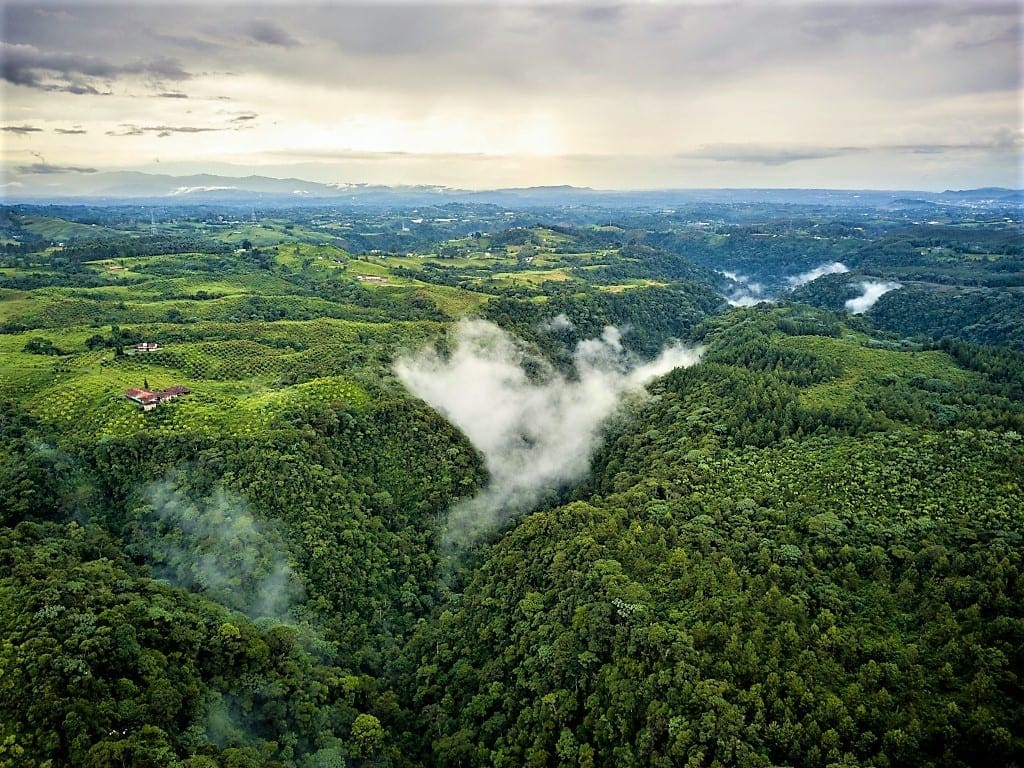
The initiative is in line with the tourism reactivation plan in Colombia. Both of these strategies help local tourism businesses to recover from the pandemic sustainably and with public safety in mind, whilst attracting a responsible traveller who wishes to leave a positive legacy in the destinations they visit.
Can you provide some examples of sustainable tourism initiatives?
Discovering Colombia sustainably is so rewarding and is easier than ever with some of the sustainable and community-led tourism projects available.
Awake Travel
Awake Travel’s tours encourage the conservation of ecosystems whilst providing essentially Colombian experiences. The company also enables local hosts and communities to develop their own tours and experiences. Whale watching in Chocó and spending a day amongst the indigenous Ticuna people in the Amazon region are two popular choices.
Corales de Paz
In partnership with diving companies, coral reef research organisation Corales de Paz offers diving with purpose: divers not only observe incredible reefs but work to monitor and re-weave corals and collect plastics from the ocean bed.
Colombia Oculta
Colombia Oculta, meaning ‘Hidden Colombia’, is dedicated to taking tourists to remote and undiscovered parts of the country. The company has created a project called Macarena de Colores, which is focused on promoting touristic experiences with local farmers, in the National Natural Park Serranía La Macarena. The project has generated community jobs in river transportation, guides, horseback riding, agritourism and rural accommodation.
What can travellers expect from a sustainable trip to Colombia, and what are some of the highlights?
First-time visitors to Colombia are in for a treat, but there is so much to discover in this country that people come back time and time again. To unveil Colombia’s fascinating history, The Lost City on the Caribbean coast is an archaeological site thought to have been founded in 800 CE where indigenous communities still thrive. Trekking to the Lost City takes adventurers through lush jungles and past waterfalls, until a final challenging climb up 1,200 stone steps lead to the ancient entrance.
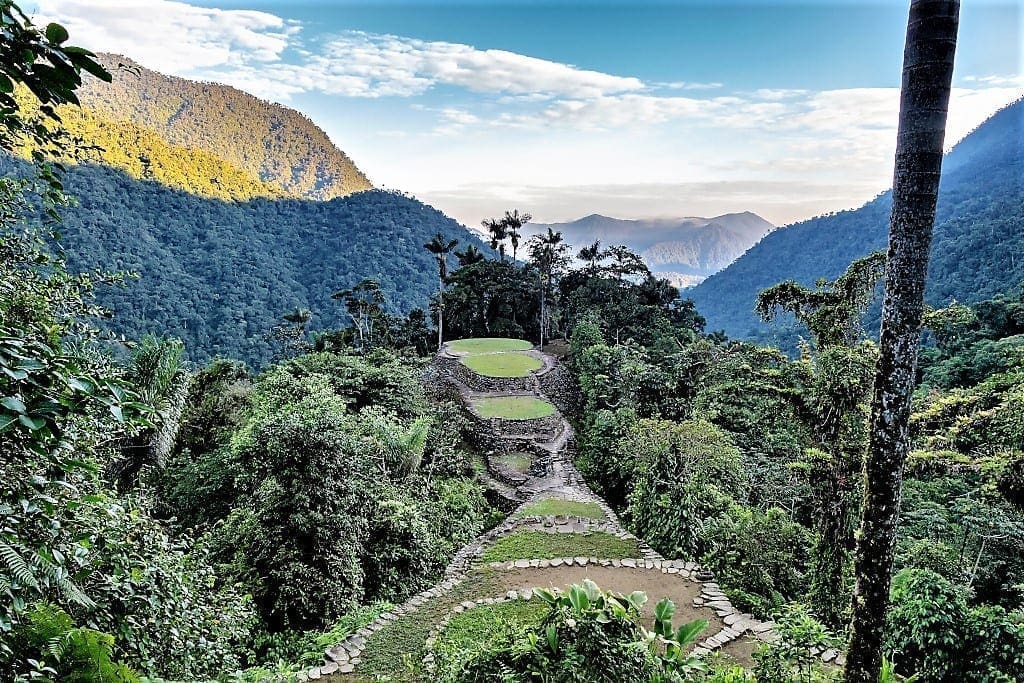
Alternatively, the Archaeological Park of San Agustín, where there are pre-Columbian vestiges that bring together part of the country’s aboriginal history is fascinating and world-famous – the park contains the largest collection of religious monuments and sculptures in Latin America.
Nature and adventure can be found in abundance in the Valle de Cauca, the Amazonas region and in Colombia’s famous Coffee Cultural Landscape. All of these beautiful areas are excellent spots for community tourism, hiking, sport fishing, cycling, agritourism, and bird and whale watching.
Sustainability and environmental protection is not a passing trend. It is integral to us as a country
Colombia’s culinary scene offers great cultural insight. The climatic conditions of the six macro-regions (Caribe, Pacífico, West Andes, East Andes, Macizo and Amazonian-Orinoco) of Colombia mean visitors will find a great variety of ingredients such as yam, dragon fruit, camu-camu, copoazú, açaí, chontaduro, coffee, cacao, banana, among many others, so Colombian cuisine is extremely creative with historical traditions that underpin each dish.
Travellers can visit food markets such as Paloquemao in Bogotá and Bazurto in Cartagena, taste the freshest Arabica coffee on coffee plantations in the Coffee Cultural Landscape or harvest and taste delicious cocoa in Santander. These activities can also be done in the company of local chefs and cooks, so visitors can learn tricks and tips from the best culinary minds.
How are local communities being supported by sustainable tourism drives?
Communities are supported by training and engagement programmes in the tourist chain, which help remote communities to develop tourism offerings so they can generate income and improve their living conditions. Tourism plays a decisive role for locals, as it becomes an economic activity for those who previously had no alternative in their region. There are ethnic communities in Colombia who have really harnessed their opportunities: many open up their own homes for lodging, offering a friendly Colombian welcome and homemade meals; and nature and adventure activities guided by locals prove very popular.
Several regions exemplify the work of community tourism in Colombia including Antioquia, Bolívar, Cesar, La Guajira, Caldas, Boyacá, Cundinamarca, Quindío, Risaralda, and Meta. If you want to dig deeper on this, we invite you to look at this meaningful travel map: https://colombia.travel/en/tourism-cares
What future plans does ProColombia have for sustainable tourism initiatives?
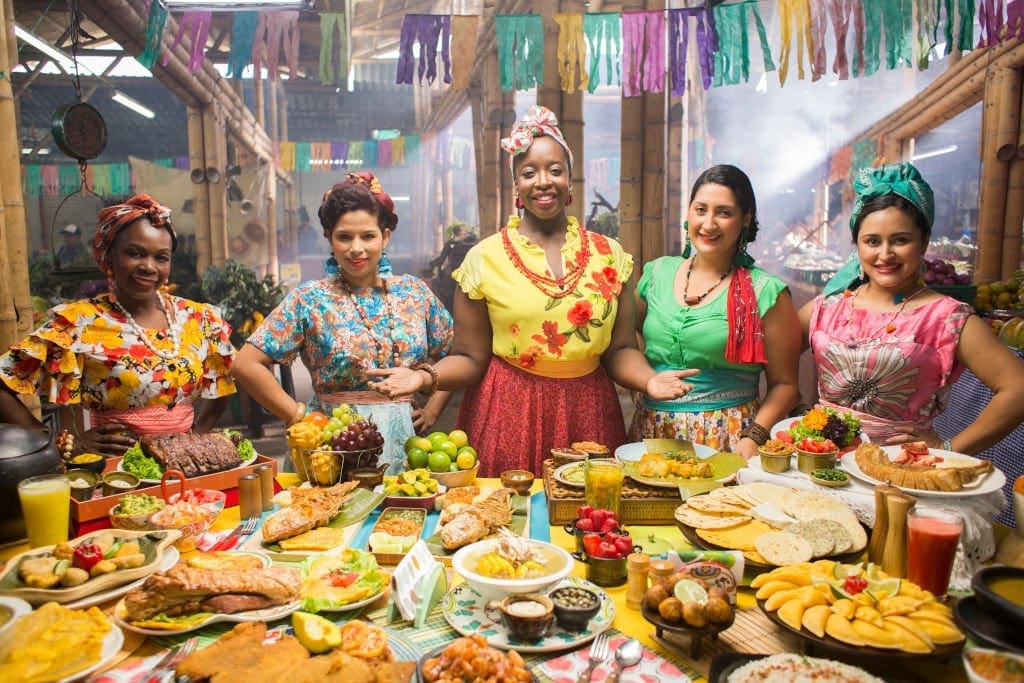
Sustainable tourism is our main focus for the foreseeable future. We plan to keep working on the Sustainable Tourism Policy and the new General Tourism Law as our two main projects. At ProColombia we know that the preferences and demands of travellers may change, but sustainability and environmental protection is not a passing trend. It is integral to us as a country.
ProColombia has worked on promoting high-quality and sustainable tourism, but now it is essential that the tourist chain dedicates itself to having a positive impact on the environment and communities. We need travellers to understand the huge importance of travelling responsibly and taking part in sustainable activities. ProColombia sees this as a priority, as it seeks to regain the confidence of the travellers after the pandemic.
For more information about travel to Colombia visit: www.colombia.travel. All images supplied by ProColombia.
